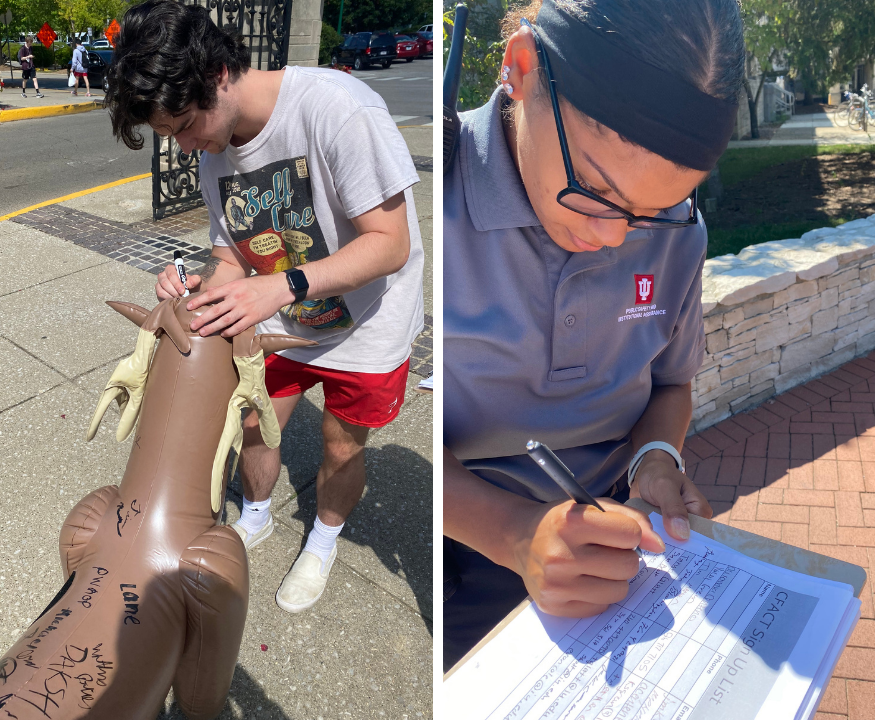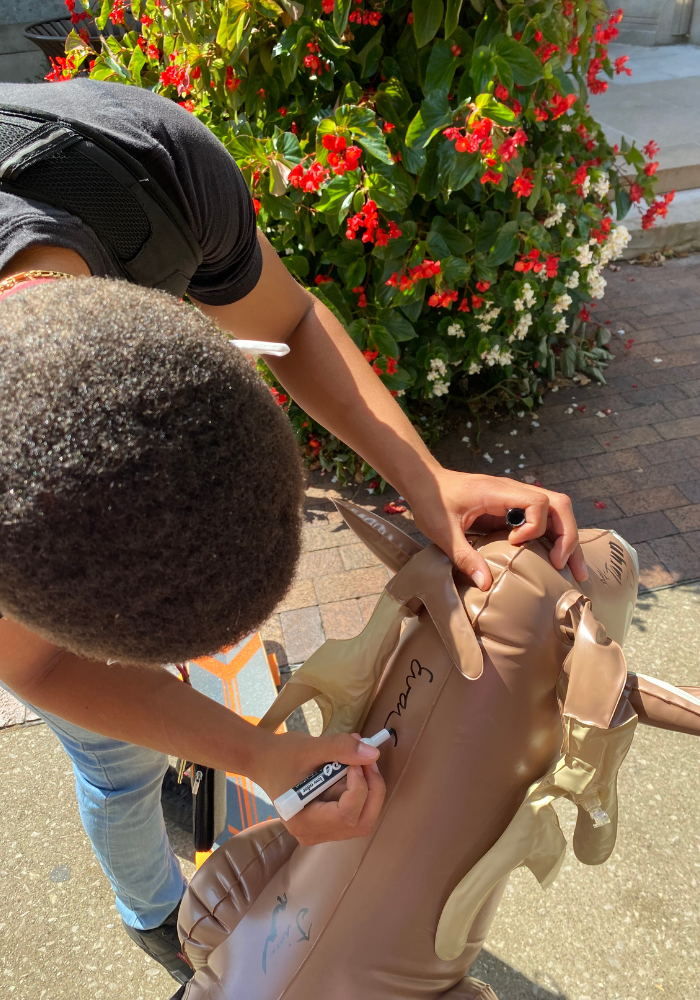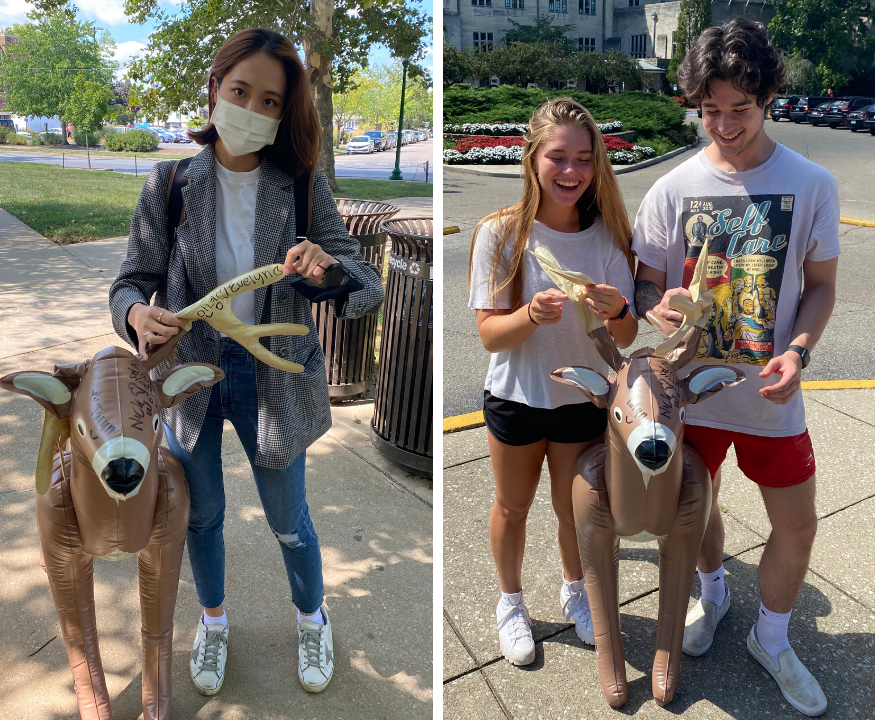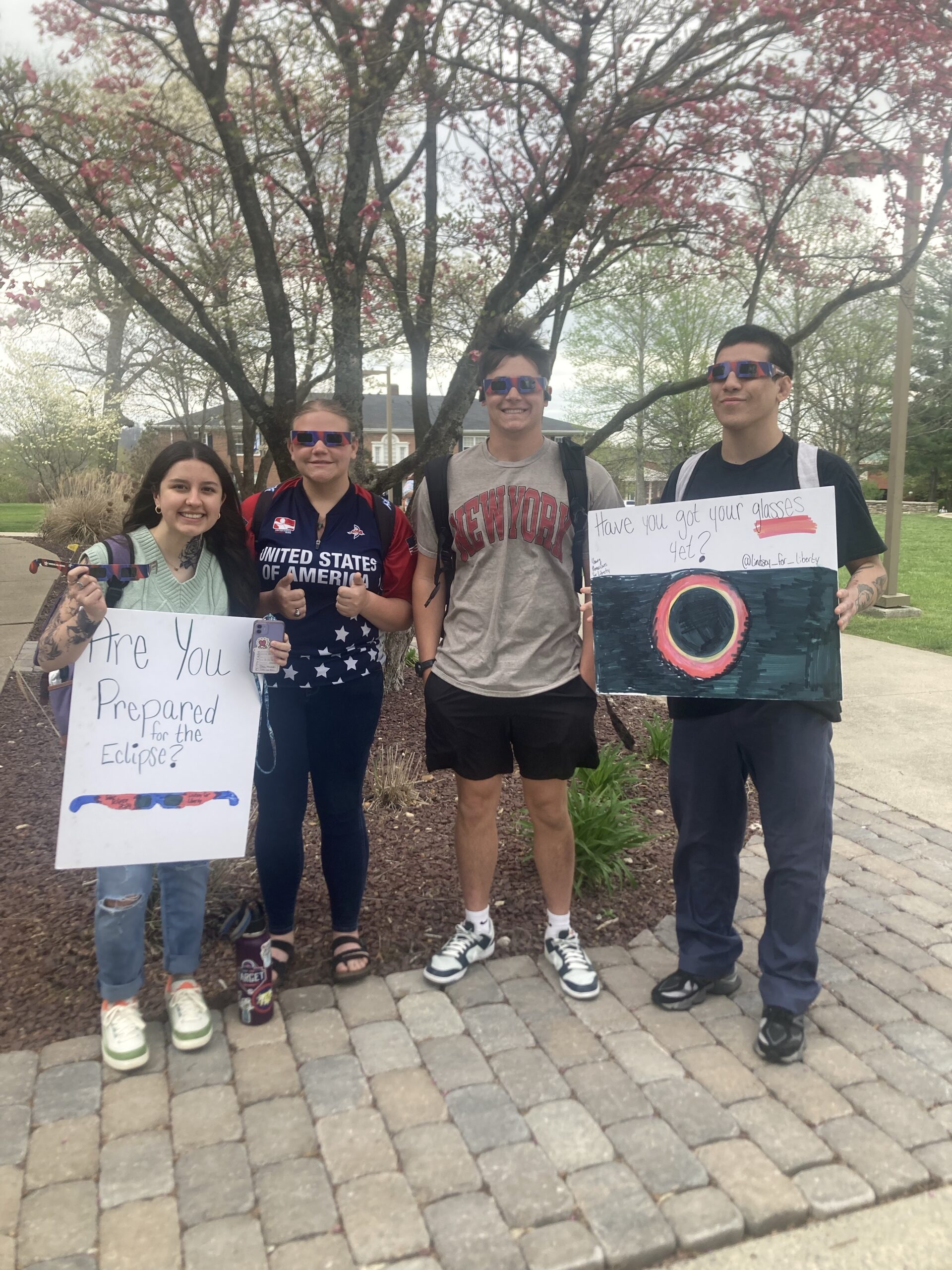Photo: Left: a student signs the inflatable deer in support of hunting; Right: a student signs up to join the future CFACT club at IU Bloomington
CFACT activists took to the campus of Indiana University Bloomington to recruit students and spread the word about sound science, smart energy policy, and conservation issues.
At the core of the recruitment drive was CFACT’s inflatable deer, fondly named “Rudolph,” which caught students’ attention and broke the ice for discussion. The deer sparks thinking about conservation and environmental policy, as CFACT recruiters will ask students passing by something like “Do you support hunting?” or “Would you like to write what you think of hunting on our inflatable deer?”
From there, CFACT activists explain that despite what students hear from their classrooms and the media, human action is not always a bad thing for the environment, and the idea that humans need to be completely removed from the environment to protect it is wrong. For example, hunting helps keep problem animal populations from eating too much of the food supply in an area or becoming too dense in population. Hunting also helps fund a large amount of the conservation efforts in America, such as park improvements and species rehabilitation.
“In the same way, human activity of simply driving one’s car, providing for one’s family, and enjoying life is not contributing to an environmental crisis or ‘climate emergency,'” said Bob Knee, CFACT’s National Field Coordinator. “There are real environmental problems we can take care of, like water quality and forest fires, but human activity isn’t an automatic negative thing for the planet. This deer gimmick, while it may seem odd at first glance, really helps bridge those discussions and open up students’ eyes on these issues.”
CFACT’s efforts at IU Bloomington saw great success on the first round of recruitment, with several dozen students signing up to learn more. CFACT plans to organize additional recruitment efforts this fall semester to identify potential club leaders who have a passion for limited government and sane environmental policy.
Once the club leaders are identified in the future, CFACT plans to bring expert scientists to discuss energy and climate change, coordinate on campus activism to bring the facts directly to students, screen films like CFACT’s Climate Hustle and Climate Hustle 2 to educate students, and organize stewardship events such as litter clean ups and tree plantings.
Look for exciting updates in the months to come as CFACT’s efforts begin to take root.





